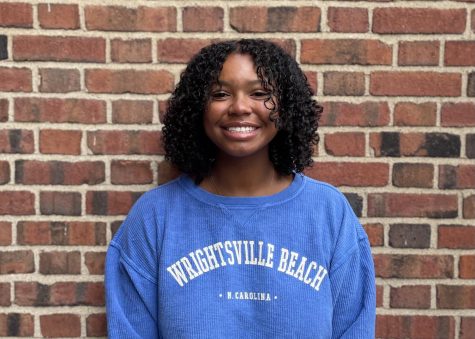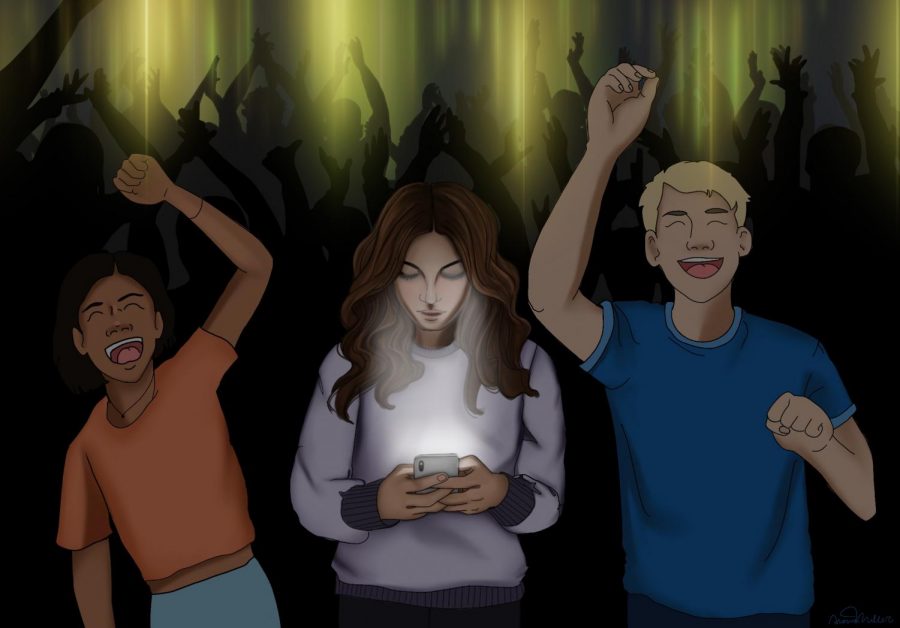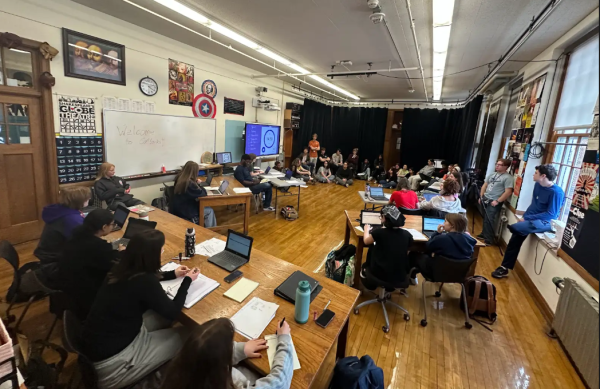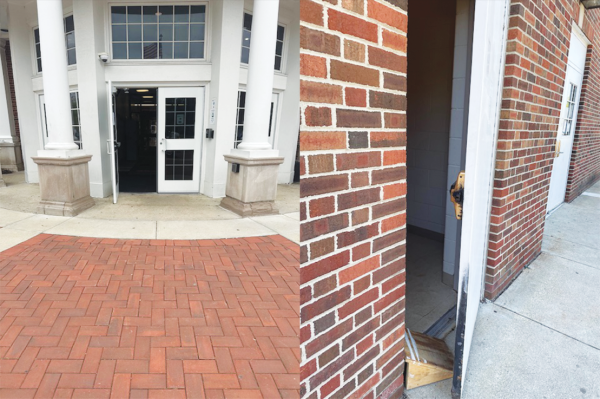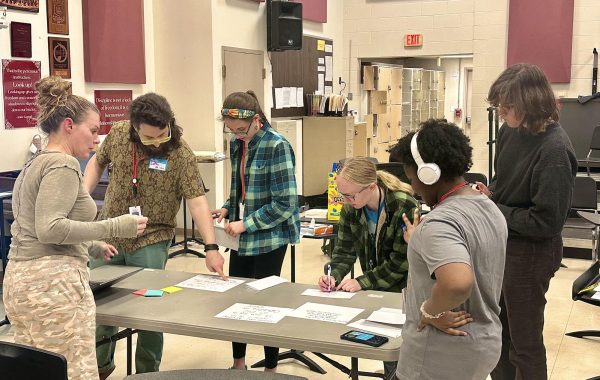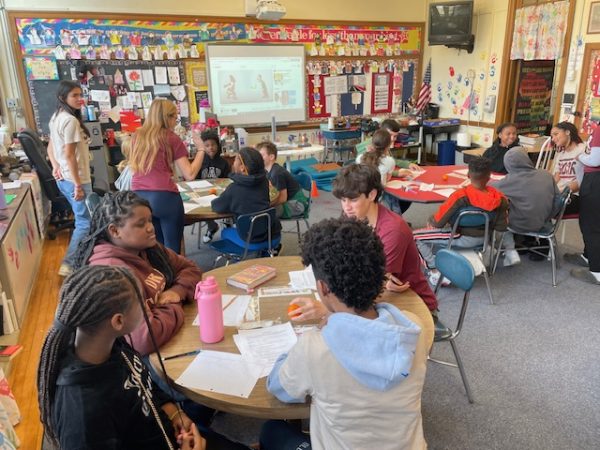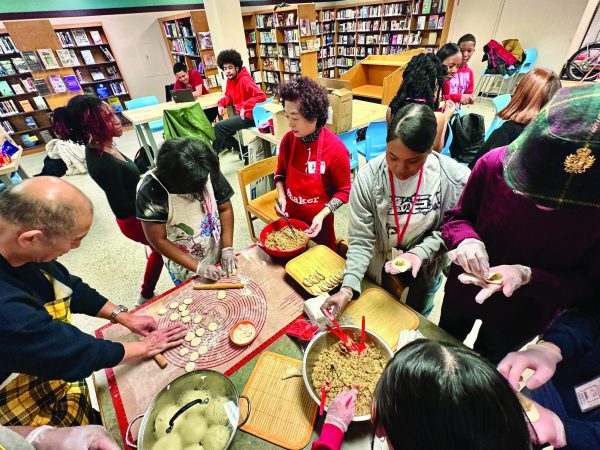Disconnect to Connect
As social media’s influence over society grows, it is important to cleanse and better connect with your reality
I started by turning off Snapchat notifications. Next, I ended my Snapchat streaks, an addictive feature on Snapchat that tracks the number of consecutive days users Snapchat one another. Then I cut down my time on Instagram; I barely posted every few months.
As I pared the time I spent on these apps, I realized how much I hated the way Instagram and Snapchat consumed peoples’ lives, including my own.
It was time for a social media cleanse. I needed to connect not only with people in my life, but with my own priorities. To do this, I would have to remove myself from social media until I set my priorities straight and improved my relationships.
It’s hard to remove something from your life that took up so much time. How would I spend my hours alone? All I could think about was how many messages I would miss, how many stories I wouldn’t see and how many people I couldn’t contact. I feared missing out on conversations with people I don’t regularly see or talk to, or the memos for parties or plans with my friends.
But I decided that regardless of how challenging or unenjoyable the cleanse might be, I had to do it.
I have always taken pride in earning good grades, playing sports and participating in extracurriculars, but I didn’t have as much to be proud of during the first quarter of this school year. My grades began to drop, and I wasn’t as strict about completing my homework, yet I had no problem using social media for hours every night.
On an average day I would come home after practice, eat dinner and take a quick break from school. By the time I got to work, it would be well into the night. Because I did not manage my time well, I needed every minute from when I got to my room until I fell asleep to complete my homework.
My commitments and evening habits left no time or place for TikTok and Snapchat, but I used them anyway. I watched my work ethic and social habits change for the worse as my use of these apps skyrocketed.
My social media use made it easy for me to procrastinate. Whether I was engaging in a meaningless conversation in a Snapchat group chat or scrolling through an endless TikTok feed, I couldn’t stop. Starting my homework as the rest of my family went to sleep left me upset and sleep deprived. And there was rarely a post or text that was satisfying enough to justify the amount of time I spent on my phone. In fact, I often felt like I had just wasted time I could never get back when I could have been working, or talking with my family or friends about more important things than typical teenage drama. This horrible nightly routine caused a perpetual cycle of minimal sleep and minimal homework done. As a result, I felt guilty and anxious. There was no way I could live up to my academic expectations and goals if something didn’t change.
It wasn’t only academics; I didn’t call or speak to my friends as often as I once did. I saw my relationships diminish to emojis and abbreviated messages that rarely expressed what we actually felt. Most teenagers choose to text or Snapchat rather than calling, or even meeting in person. We miss out on the joy or sorrow of hearing people’s voices, seeing their real emotions and carrying on conversations that rely on real connections and interactions instead of the remote ones made when we’re apart.
Early in the cleanse, nothing seemed to fill Snapchat’s void. I could not think of what to do with all the time I had on my hands during class, in the car, in the hallways, and even when I was with my friends. So I would sit in silence, unsure of how to interact with the people around me as they browsed through constant updates on other peoples’ lives and whereabouts.
My instinct was to fill awkward spaces with social media. It required no effort. But without that instantaneity, it was difficult to make real connections.
I wouldn’t consider myself an introvert, but without social media I felt much more shy and tended to overthink things. It would take me forever to ask some of my closest friends to hang out or participate in certain conversations. I often felt what my friends and peers were talking about had happened in a different world. I felt out of place.
It took nearly the first two weeks to accept that I did not need Snapchat to communicate. Once I got over my introversion, I found myself striking up conversations in person more often because I chose not to use the platform that made it so easy to connect and talk through the phone.
Without Snapchat, I had to engage with surroundings. I branched out and talked to new people and further developed the relationships I had with my close friends, or I got a head start on homework in the few minutes before the bell and other awkward gaps of time. Most importantly my mental health improved as I began to adjust my unsustainable sleep schedule.
After about three weeks, the cleanse became easier to stick to, despite how much I feared missing out in the beginning. I was no longer bothered by missing out on things I didn’t even know were happening. Without social media, I noticed how much my time management and work ethic improved. I had the time to think, sleep and focus on what was really important in my life.
I no longer felt like I was always missing out or disconnected from my friends. Instead, I was able to determine who my close friends were, gain two hours of sleep and raise my mediocre grades. I felt less confined by social pressure to go out every weekend, pretend like I enjoy artists such as Trippie Redd (meh) or give in to trends like dying a random strand of my hair pink (ugh).
To some, a social media cleanse may seem pointless. I thought so, too, at first. I deleted Snapchat impulsively, just to see how long I could last, as I accepted how much of a social and mental distraction it could be.
But, still, we live in the age of social media. We use it for speedy communication and informing others on social and political issues. It even influences our purchases, relationships, education and decisions, especially as we tune into other peoples’ online lives.
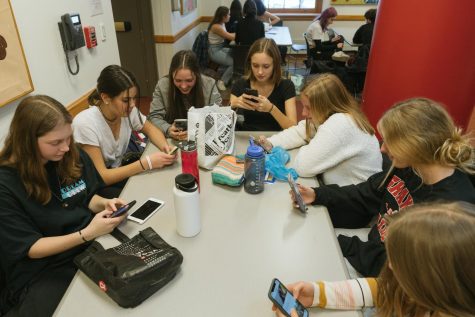
These platforms have benefited our generation greatly and made us different from the generations that came before us. But these apps’ flaws creep into our lives every day.
By downloading Instagram, Snapchat and TikTok, we build up walls that keep us from physical interactions. These walls make it difficult to separate what we see online from reality. Members of Generation Z, born from 1995-2015, seek attention and acceptance from the people in their social circles, their communities — and even from strangers.
We crave so much attention and acceptance that we sometimes do whatever it takes to get them. I constantly help people with the process of posting pictures on Instagram, for example. The decisions leading up to a post is complex; teenagers consider what they post, when they post and how many likes their posts will earn compared to their last post or a friend’s last post.
We use social media, especially Instagram, to define and measure beauty. This craving causes us to compare ourselves to others and to criticize others’ appearance. What we choose to compare isn’t always authentic, thanks to the use of filters and editing. Defining and measuring the beauty of celebrities, social influencers, peers and friends, whether it is authentic or not, can damage the self image of Instagram and Snapchat users.
Teenagers also seem comfortable saying anything from pointless gossip to private personal information over Snapchat, without thinking twice, because it will “go away in 24 hours.” The impact of photos and videos can escalate before those who post them even consider their consequences.
It may seem impossible, but an occasional social media cleanse, whether it is a month or even 24 hours, is necessary for everyone. Using it less made me aware of how to use it healthily.
After a month of staying off Snapchat, I downloaded it again to see if I noticed any differences in how I communicate, with whom and what I felt comfortable sharing over Snapchat. Browsing through the app, I could barely remember why I pursued that addictive attraction in the first place. Immediately, I noticed I found less pleasure in the distractions, gossip and meaningless conversations that Snapchat provided. It was no longer an instinct to swipe through stories and posts mindlessly until I ran out of things to do. Instead, I put down my phone to talk with my family, complete my homework, meet up with friends, or just relax.
Social media seems like a pillar of life for teenagers, but real social interaction is irreplaceable. We need to take a step back, look at, and live our lives without social media every now and then. All we have to do is put down the phone — and call up our will to live life in person. All we have to do is detach.
Comment using your Facebook, Yahoo, AOL or Hotmail account
